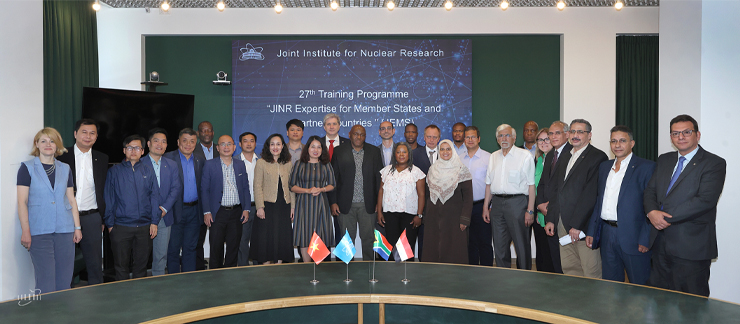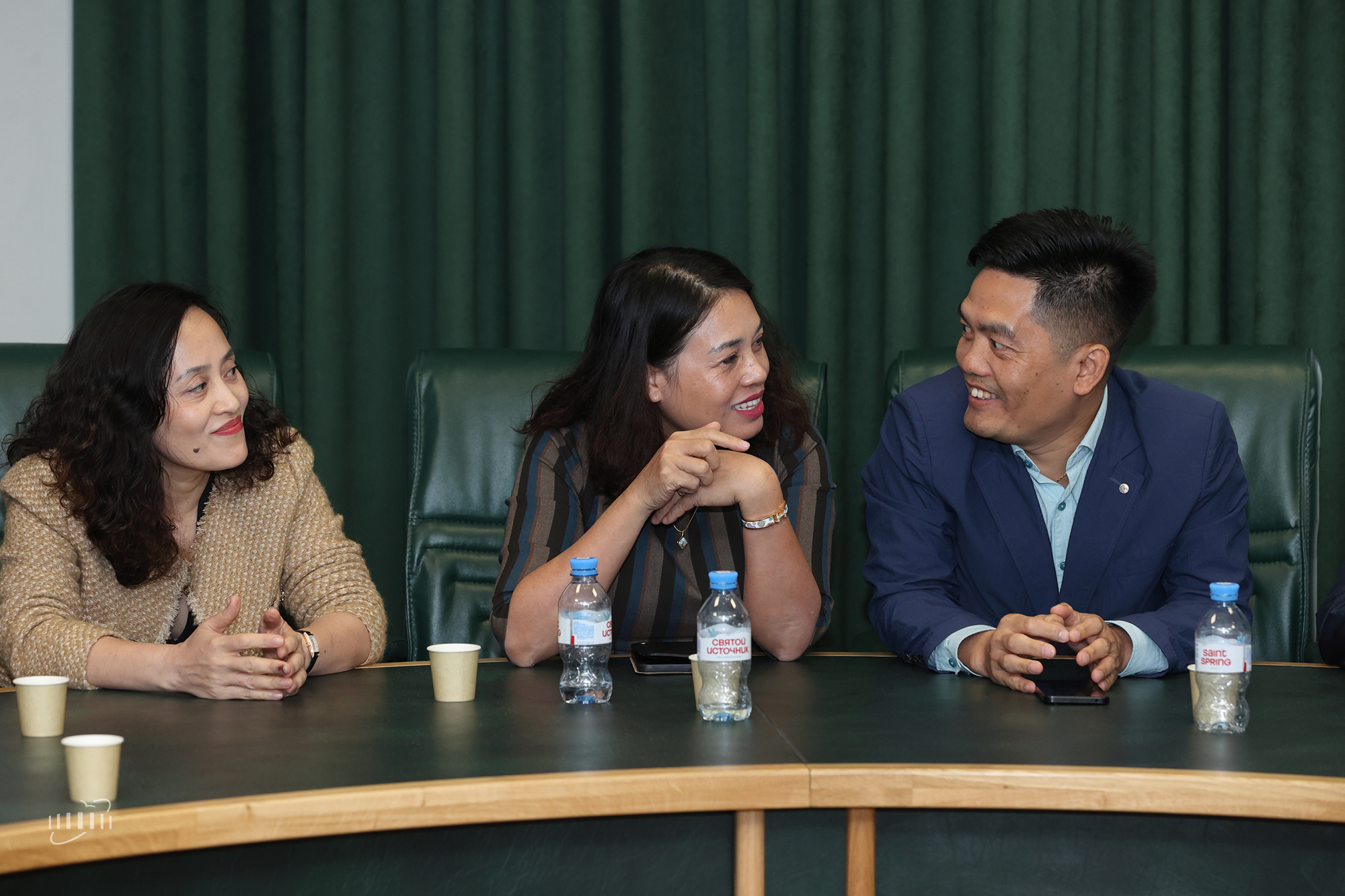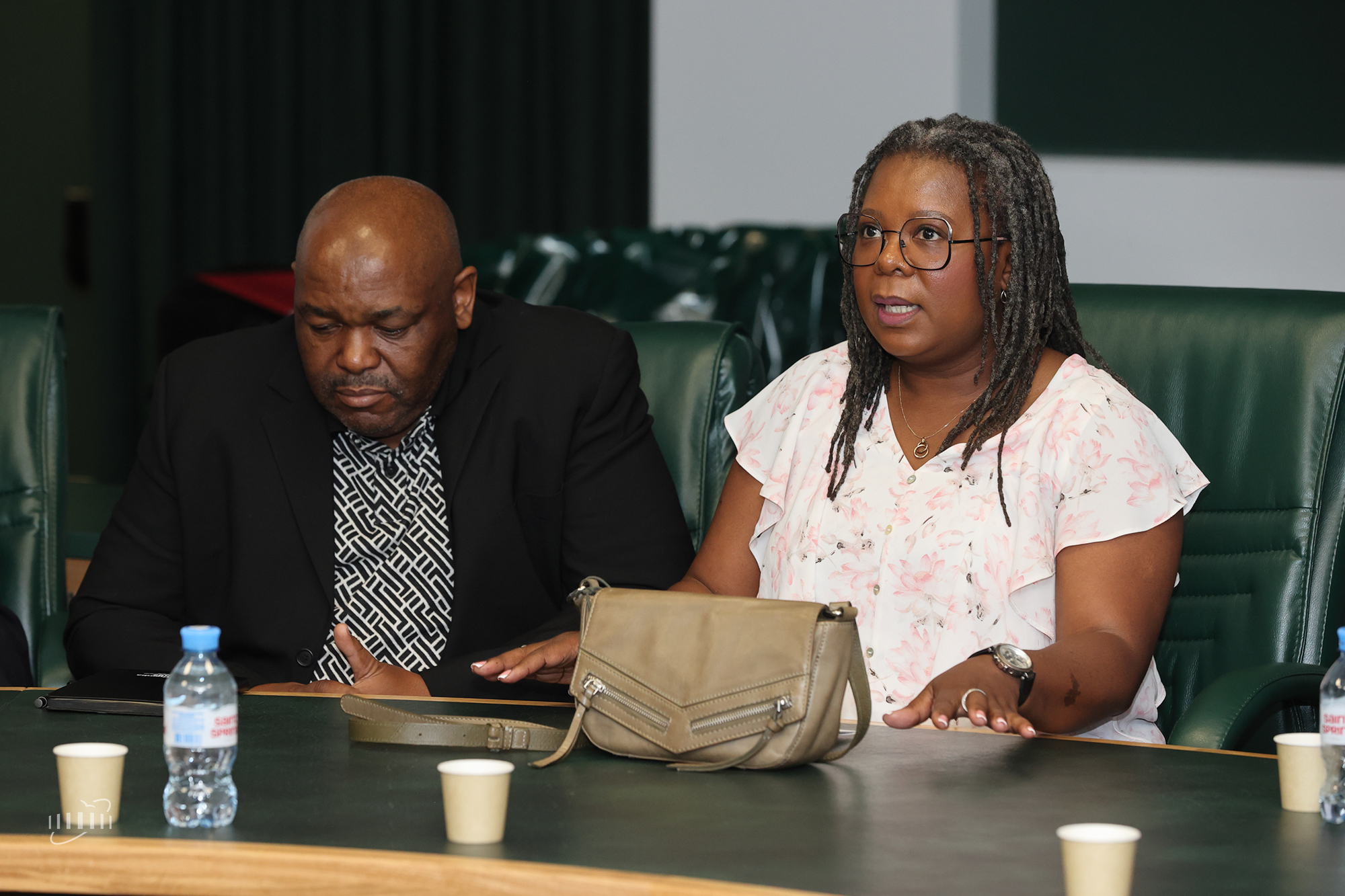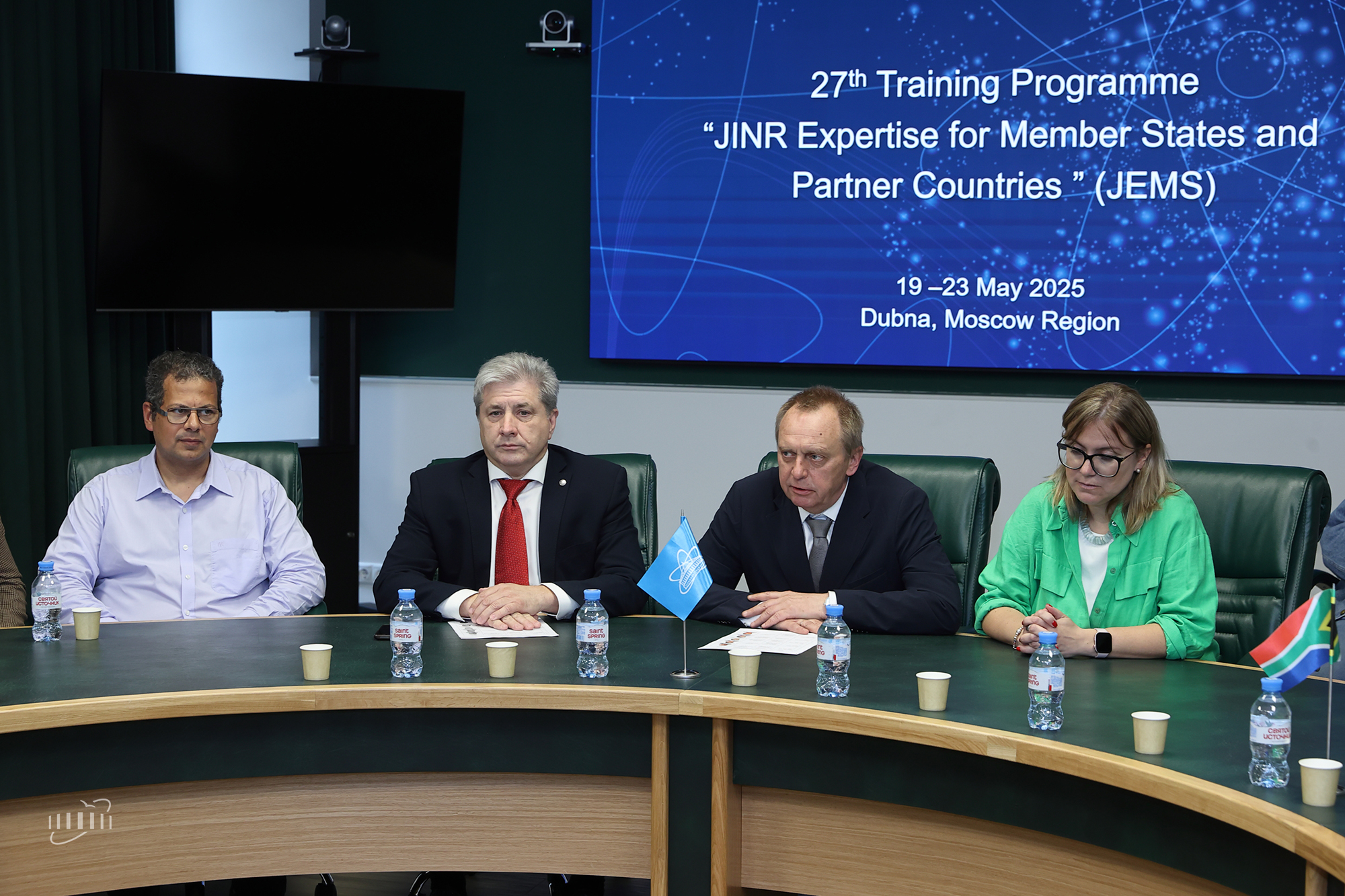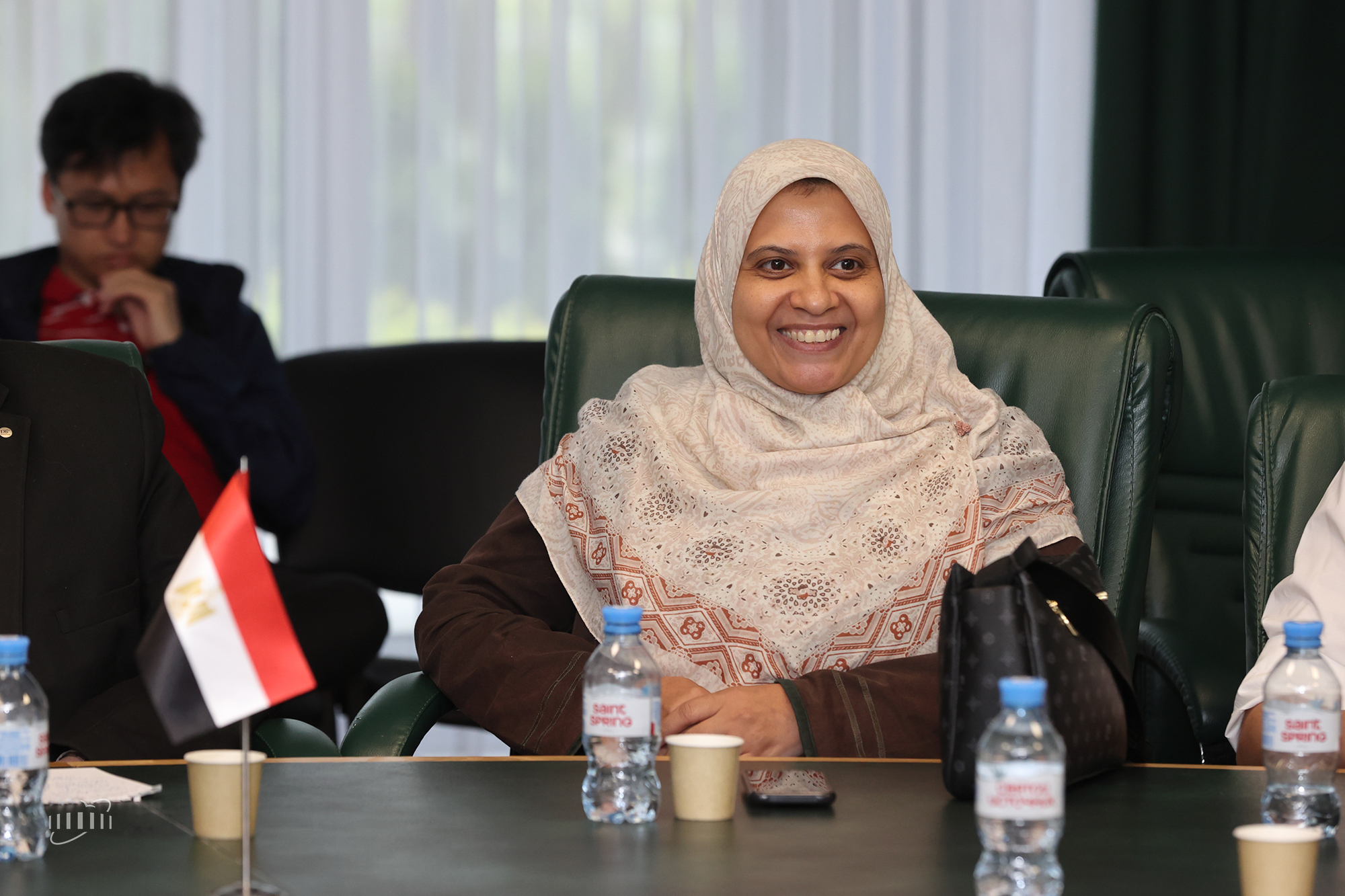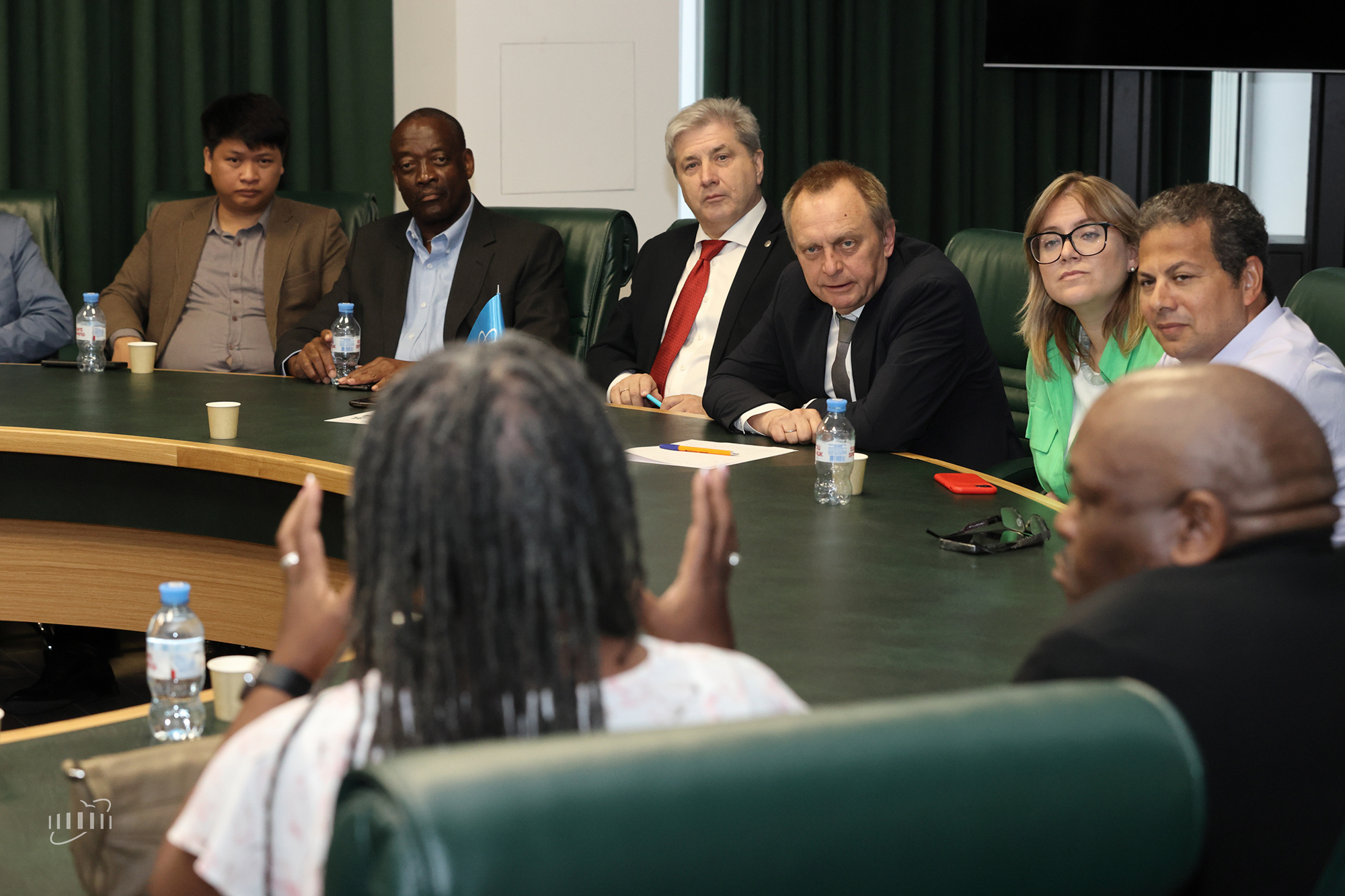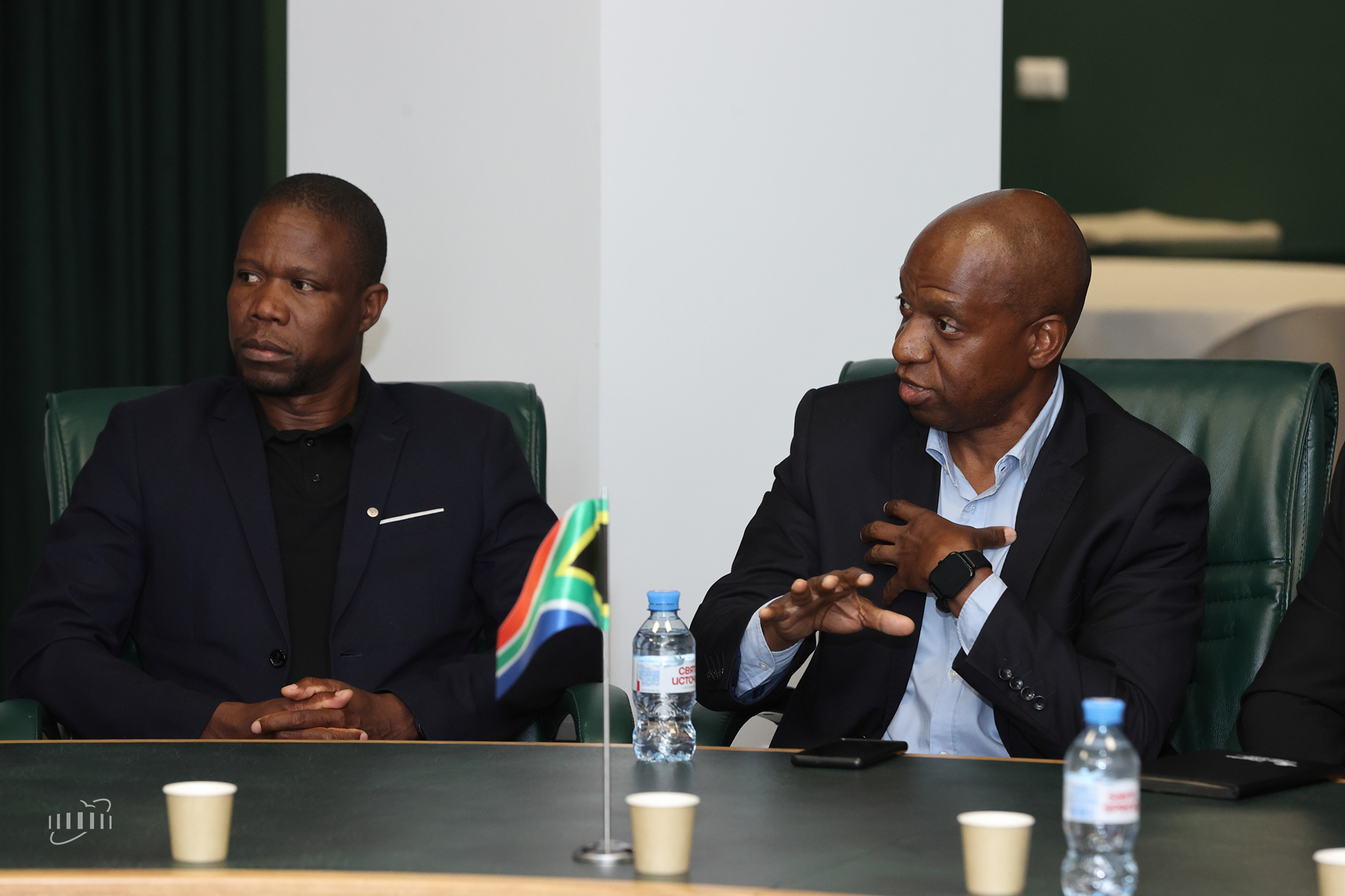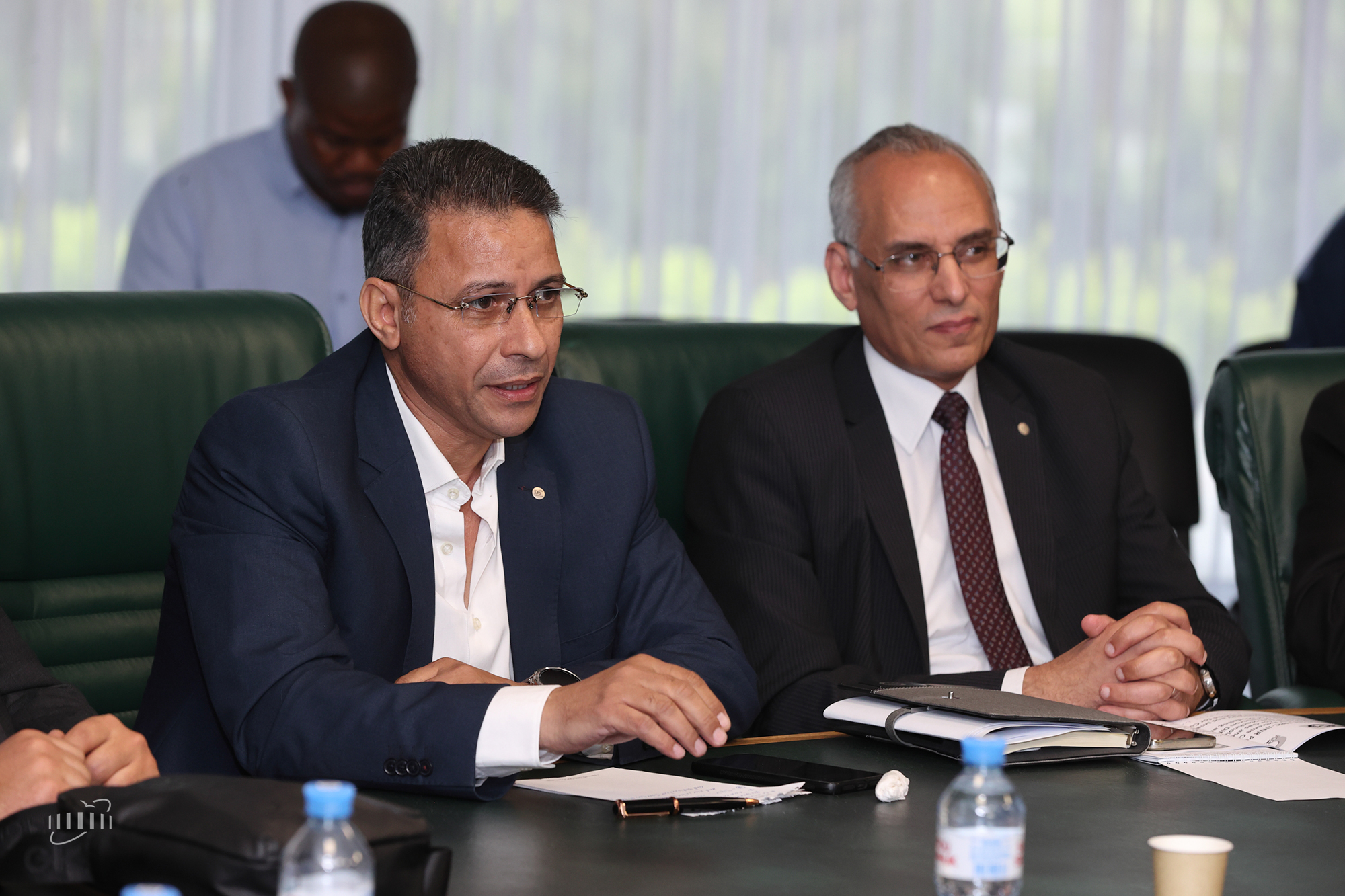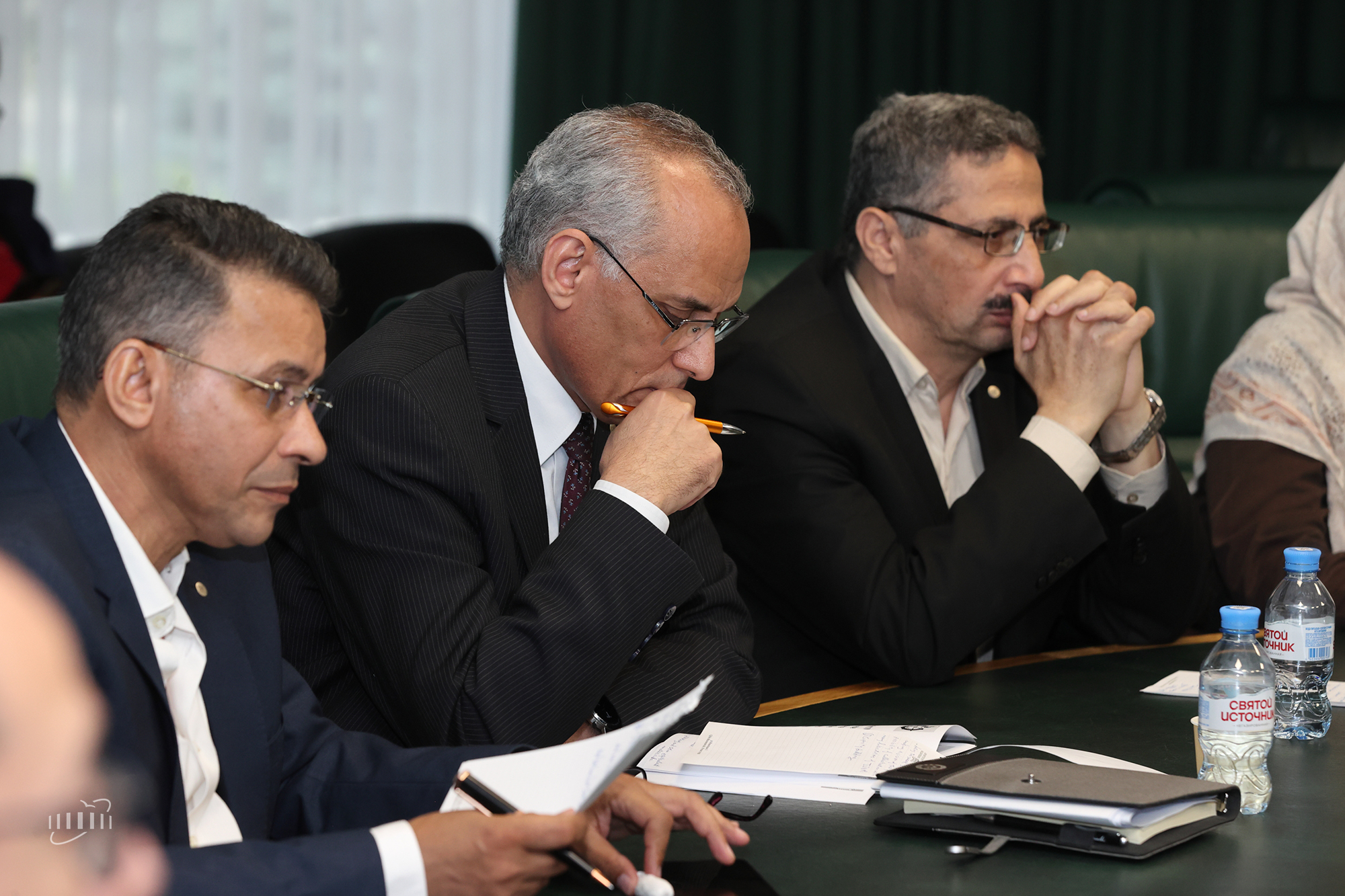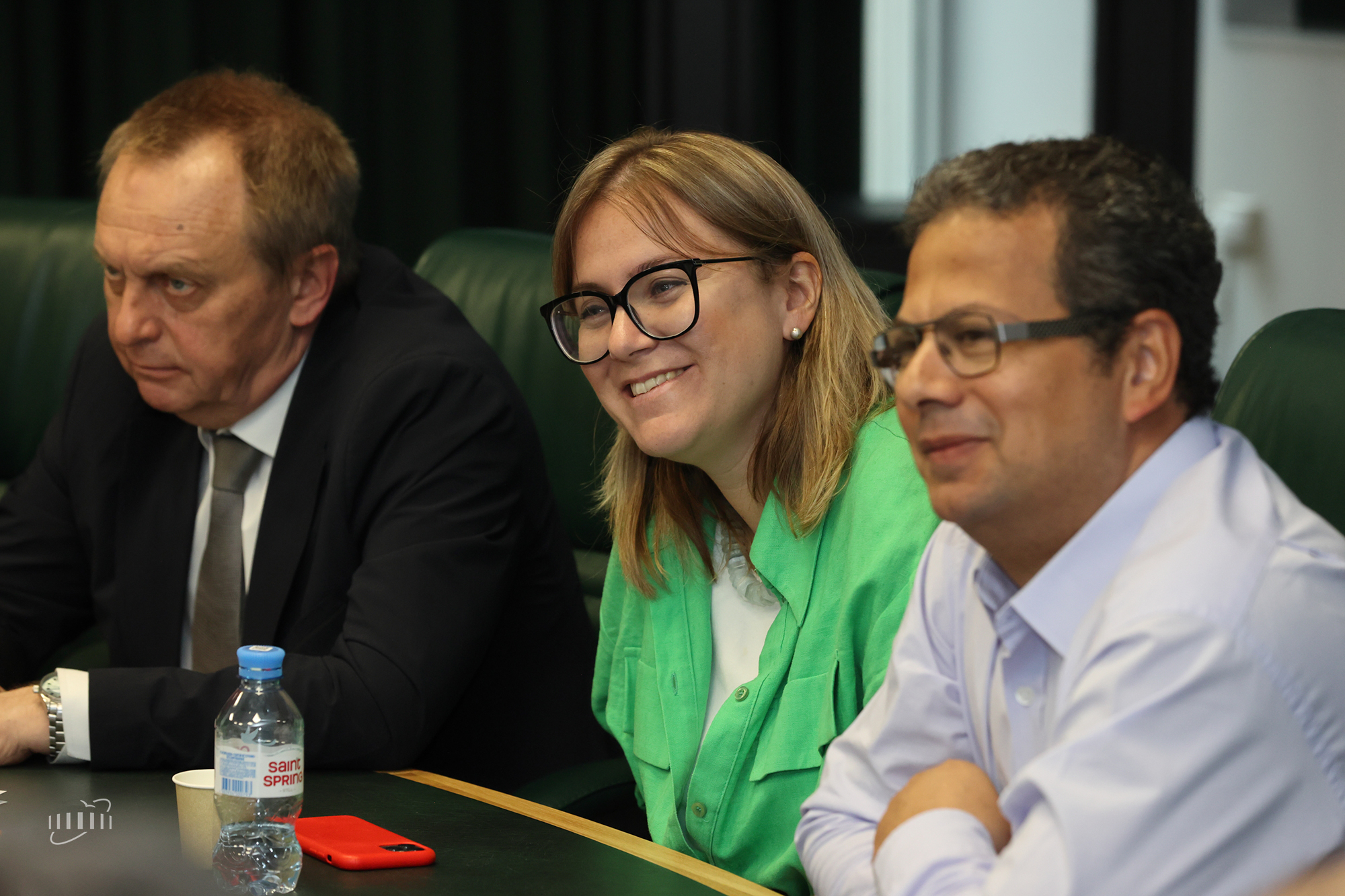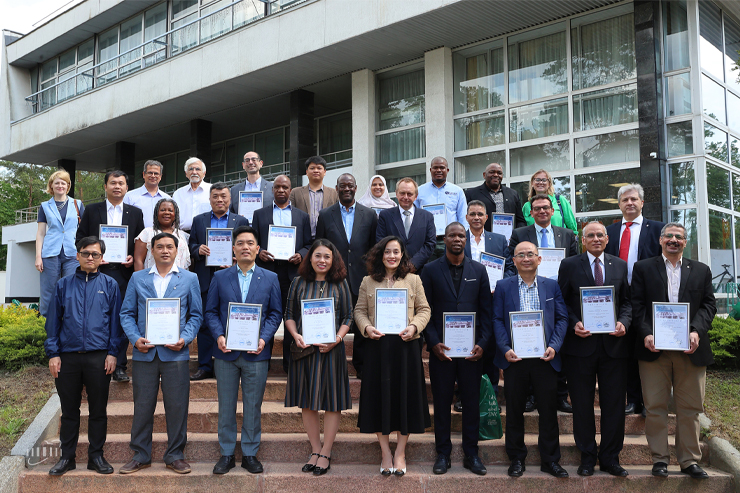JEMS-27: human potential as cooperation’s driving force
News, 27 May 2025
On 23 May 2025, the 27th JINR Expertise for Member States and Partner Countries (JEMS) training programme ended. At the final round table held at the International Conference Centre, representatives of scientific and educational centres and agencies of Egypt, South Africa, Vietnam, and Nigeria shared their impressions of the Joint Institute for Nuclear Research and discussed promising areas of cooperation with JINR’s laboratories.
In his welcome speech, JINR Chief Scientific Secretary Sergey Nedelko highlighted the importance of the internship as a starting point for fruitful cooperation at all levels, including collaborative research projects and educational programmes.
“We genuinely hope that our interaction at JEMS helped establish new contacts and outline further plans for joint work,” JINR University Centre (UC) Director Dmitry Kamanin addressed the course’s participants. “The feedback from our partners is especially important for JINR. Your ideas and suggestions can fuel the development of future research projects”.
The participants highly appreciated the efficient organization of activities at JINR, emphasising the importance of the Institute as an international platform for scientific cooperation. They noted the practical value of the thorough week-long introduction to the experimental facilities and research areas of the laboratories for developing their professional skills and planning collaborative projects. In addition to the scientific aspect of the event, the guests appreciated the unique atmosphere of Dubna. They agreed that the harmonious combination of natural landscapes and the developed infrastructure of the science city fosters productive research activities.
Vietnam representatives were impressed by the scale of the Joint Institute’s scientific programme. They emphasised the great prospects for expanding cooperation and discussed the potential internships at JINR for students and young scientists from the Member States. “I hope that our active cooperation with JINR will continue and be fruitful,” Deputy Director of the VINATOM Department of Planning and R&D Management Long Pham commented on a meeting on long-term planning of personnel training for future VINATOM projects, held during the course.
Head of the FLNP JINR Nuclear Physics Division Valery Shvetsov noted the Joint Institute’s extensive experience in developing key equipment for accelerator complexes and conducting experiments in nuclear and condensed matter physics. “The IBR-2 Pulsed Reactor is available for scientists from the JINR Member and Partner States,” he stressed. “FLNP is ready to welcome specialists and students from Vietnam to conduct joint studies and help them gain practical experience working at the IBR-2, which will be of use for the new Vietnamese research complex”.
“Ensuring access to our scientific infrastructure for all partners is one of JINR’s key priorities,” Dmitry Kamanin confirmed. “The Institute strives to use all available resources to promote the creation and development of modern infrastructure in the territories of the Member States”. While discussing the results of the meeting with South African and Nigerian delegations, which took place as part of the course, he noted the synergy with the concurrent UC educational programme on using the virtual laboratory for a group of professors from South African universities.
Representatives of Egyptian organizations highly appreciated the potential of cooperation with JINR, emphasising the role of the internship in strengthening the dialogue in science and technology. President of the National Research Centre of Egypt (NRC) Mamdouh Moawad Ali Hassan expressed gratitude to the JEMS organizers for the opportunity to get acquainted with the advanced infrastructure of the Joint Institute. “This visit confirmed the value of the long-term partnership with JINR. I am confident that joint projects in promising areas of research will take our cooperation to the next level,” he concluded.
Egyptian experts identified priority cooperation areas, including neutron studies, radiation and environmental monitoring, and materials science. Emphasis was placed on personnel training as well: according to the participants, involving young specialists in work at the JINR facilities is vital for the development of competencies that meet the challenges of modern research.
Participants from the Republic of South Africa noted the modern infrastructure of the Joint Institute for Nuclear Research and the professionalism of its employees. Deputy Director of the iThemba Laboratory for Accelerator Based Sciences (NRF: iThemba LABS) Rudolph Nchodu highly appreciated the JEMS programme, emphasising the many ways it contributes to the development of international cooperation. In his opinion, JINR specialists have rich research and organizational experience in science and education. “I often think about the famous words: if one has seen further, it is by standing upon the shoulders of giants,” Rudolf Nchodu said. “JINR has its own giants who will help the South African scientific community look into the future”.
The South African government considers cooperation with JINR an important tool for popularising science, particularly nuclear physics. Deputy Director of the Department of Science, Technology and Innovation of South Africa (DSTI) Livhuwani Masevhe confirmed his intention to use the JINR experts’ experience to develop initiatives to effectively inform and educate the public about the role of nuclear science.
Head of the Human Resources Department at NRF: iThemba LABS Bulelwa Buthelezi noted that understanding how JINR works will allow the company to improve its cooperative management and collaborate with JINR interns more effectively. “The JEMS course provided me with a fresh perspective about supporting international scientific cooperation,” she said.
The round table finished with a ceremony to present the JEMS internship certificates to the participants. Summing up the discussions, the experts noted the key role of developing scientific and educational programmes and training highly qualified personnel in promoting modern science and international cooperation.
